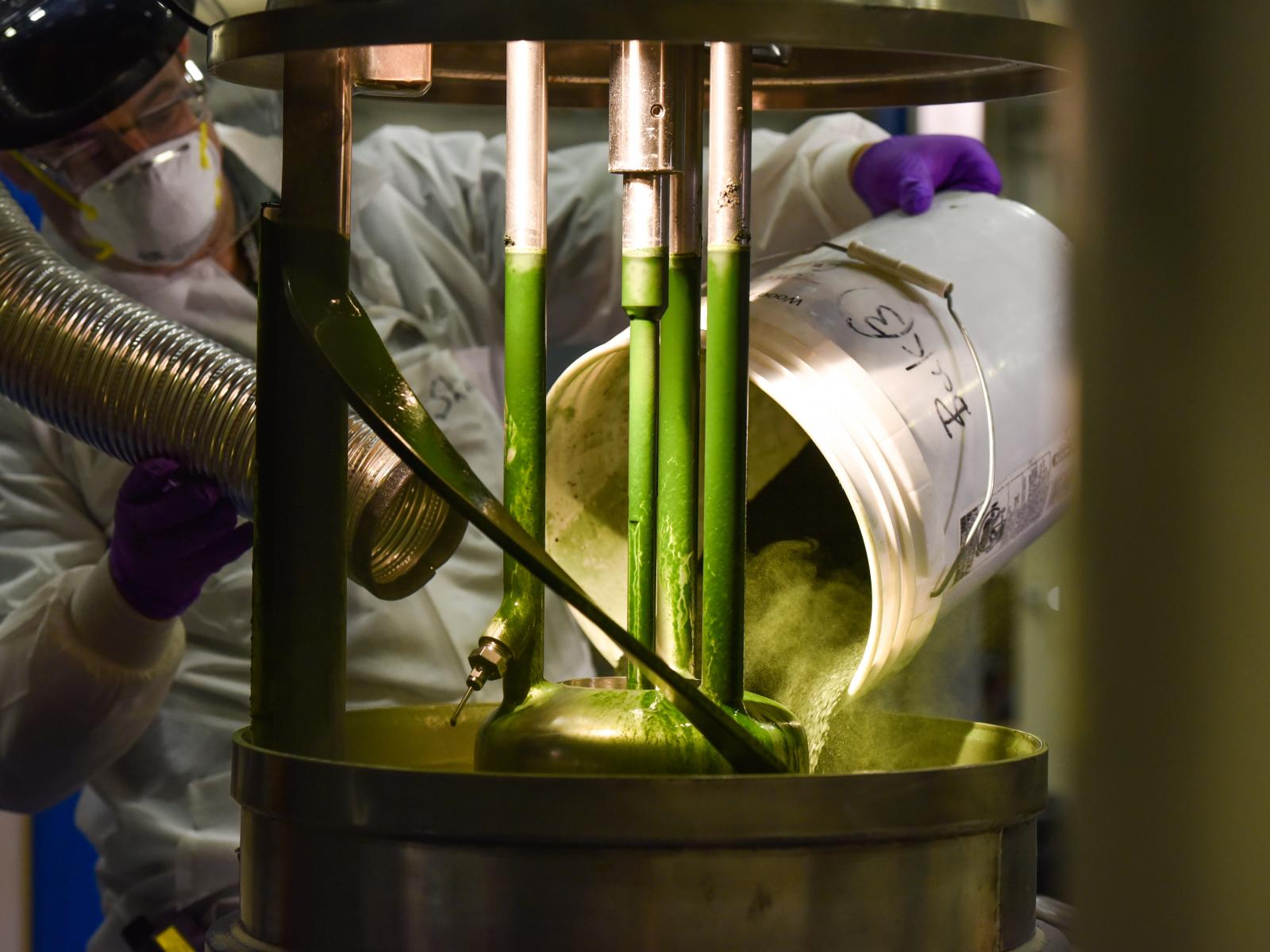Biological & Bioprocess Engineering

Our team develops technologies and processes to convert biomass and waste materials into fuels and chemicals that will reduce the nation’s dependence on petroleum. Biomass sources include lignocellulosic materials—such as corn stover and wood wastes—treatment-plant wastewater, algae, and other sources. Decades of research at PNNL have established biological and bioprocess engineering as a core capability.
Our biologists, chemists, and chemical engineers specialize in fermentation, algae growth and processing, catalysis and reaction engineering, separations, process engineering, techno-economic and lifecycle analyses, and resource assessments. PNNL research spans the understanding of the molecular interactions involved in the conversion process to pilot-scale operations that demonstrate our technologies, allowing transfer to industry for commercial application.
At our Marine and Coastal Sciences Research Laboratory, we house unique indoor, climate-controlled raceway ponds that can cultivate microalgae strains under conditions that simulate outdoor ponds at any geographic location in the world. And at the PNNL-Washington State University (WSU) Bioproducts, Sciences, and Engineering Laboratory, researchers are integrating and scaling up the processing steps for conversion of biomass to fuels and chemicals.
Our researchers tackle the problem of unraveling complex biological systems and phenomena to design, prototype, test, and validate process components. These process components relate to bioenergy production, environmental contaminants processing, and global carbon cycling and biosequestration. This capability supports other core PNNL research areas including biological systems science, chemical engineering, applied materials science and engineering, chemical and molecular sciences, and earth systems science and engineering.
Technical areas of expertise at PNNL include fast pyrolysis for converting biomass to bio-oil, hydrothermal liquefaction for conversion of wet materials to products, hydrotreating of biocrude and bio-oils to fuels, conversion of biomass-generated alcohols to jet fuels, and conversion of intermediates to chemical byproducts.
PNNL’s biological and bioprocess engineering programs are managed for the Department of Energy’s Bioenergy Technologies Office and Office of Environmental Management.